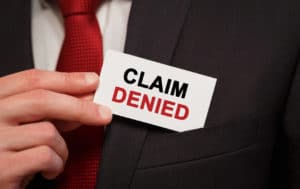
You might think you have a solid injury case against someone who negligently injured you. But the lawyer you consulted declined to represent you. If the lawyer did not explain the decision, you might wonder if something was wrong with your case or with you that convinced the lawyer to turn you down.
Here are some reasons a personal injury lawyer might have to decline your case and which ones you can overcome by speaking to a different lawyer.
Table of Contents
The Duties of a Lawyer
A lawyer has many duties to fulfill when taking cases. If accepting a case compromises any of these duties, the lawyer will decline it.
Ethical Duties
The Florida Supreme Court has passed a set of rules regulating law practice in the state. The Florida Bar enforces these rules. If taking your case could cause the lawyer to violate the Rules of Professional Conduct, the lawyer must decline your case.
Lawyers also owe a duty of candor to the courts. Under this duty, the lawyer must have a good faith basis for everything done during the case. If the case is frivolous or requires the lawyer to make bad faith arguments, the lawyer cannot take the case.
Duties to the Law Firm
Personal injury law firms are businesses. While their business includes helping accident victims, they also have certain responsibilities, such as keeping the lights on and paying staff.
Injury cases require resources. Since most injury firms charge a contingent fee, the law firm does not get paid until the end of the case. Until then, the lawyer must pay staff, bear costs like filing fees, and even work for free. If a firm does not have the resources required for a case, the lawyer will turn it down.
Duties to Other Clients
Once a lawyer takes a case, the lawyer commits to devoting the time and energy the case will need. If a new case risks overwhelming the lawyer and jeopardizing the lawyer’s other cases, the lawyer must decline the case.
Specific Reasons Why Personal Injury Lawyers Turn Down Cases

A lawyer will assess your case, typically during the free consultation, to determine whether they risk violating any duties. If they reject your case, the lawyer will explain the reason.
The lawyer might not give all of the details, particularly if your case conflicts with another client’s case. But they will give enough information for you to decide whether to consult a different lawyer.
Some reasons a lawyer might give include:
The Statute of Limitations Lapsed
The state of Florida gives you limited time to file a lawsuit for negligence (typically, two years from the accident date). If you file it just one day late, a judge must dismiss it.
Florida allows additional time for certain issues out of your control. If the at-fault party left the state to avoid the lawsuit, then the clock stops until they return. If the accident victim is adjudged incompetent due to a brain injury or other disability, the time is extended to seven years.
But if none of these excuses apply to your case, a lawyer will turn it down. Lawyers cannot accept a case when they lack a good faith belief in its validity.
The Other Party Bears No Liability
To file a lawsuit, you need a legal theory for liability and a good faith belief that evidence exists to support the theory. In most injury cases, the theory for liability rests on negligence.
To prove negligence, you must show that the other party:
- Owed you a duty of care
- Violated the duty of care
- Caused your damages
For example, after a slip and fall accident, you must show that you were lawfully on the property. You also must show that the property owner or tenant unreasonably allowed a hazardous condition on the property. And you must prove that the hazardous condition caused your injury.
You will lose your case if you fail to prove any of these elements. When a lawyer knows you cannot prove these elements, the lawyer may decline your case. But reasonable minds can differ, so talk to a few lawyers if a lawyer declines your case for this reason.
You Share the Blame
Florida uses modified comparative negligence to allocate damages after an accident. If you bear over 50% of the blame, you cannot recover damages from the other party. Bearing 50% or less of the blame means that your awarded damages are reduced proportionately.
As a result, the lawyer’s fee might be too small to justify taking the case. Again, reasonable minds may differ, so talk to a few lawyers if one rejects you for bearing too much blame.
The At-Fault Party Is Judgment-Proof
If the at-fault party lacks insurance and other assets, you might never recover any compensation even if you win your case. To execute a judgment, a lawyer needs an insurance policy or assets like the following:
- Bank accounts
- Vehicles
- Real estate
- Wages
If a lawyer cannot locate any assets or insurance policies, the lawyer may decline the case since neither you nor the lawyer will get paid.
The Lawyer Has a Conflict of Interest
Lawyers cannot accept cases that conflict with the lawyer’s own interests or the interests of the lawyer’s clients.
Suppose that you got into a car accident and collided with a tour bus. The lawyer must decline the case if they represent the tour bus operator in another case. They must also decline the case if the lawyer’s spouse owns the tour bus company.
Conflicts are personal to the lawyer. Contact another firm to discuss your case if it gets declined due to a conflict.
The Firm Lacks the Resources for the Case
Firms risk a lot when they take contingent fee cases. They must front costs in the case on behalf of the client to pay the following:
- Filing fees
- Court reporter fees
- Expert witness fees
If the firm cannot bear the costs or afford the workforce needed to handle your case, the lawyer will reject it. But you can reach out to a larger firm for representation.
Contact an Experienced Lawyer To Discuss Your Personal Injury Case
Personal injury law firms usually offer free consultations. Both lawyers and clients use these consultations to screen cases. If the personal injury lawyer identifies issues in handling your case, contact another firm and schedule another free consultation. Unless your case has a fatal flaw, you may eventually find a lawyer who will fight for your case.
To discuss whether Hollander Law Firm Accident Injury Lawyers can take your case that another firm declined, contact us for a free consultation. One of our Boca Raton injury lawyers will give you guidance about your case.
